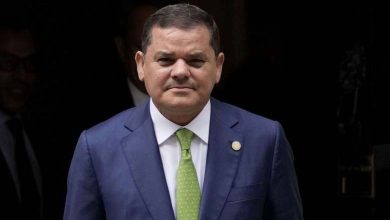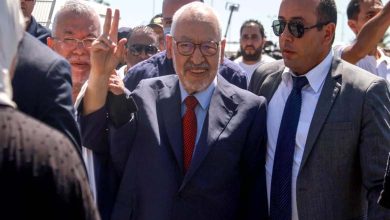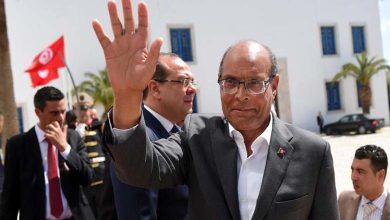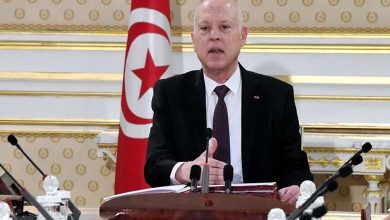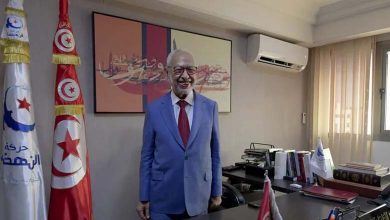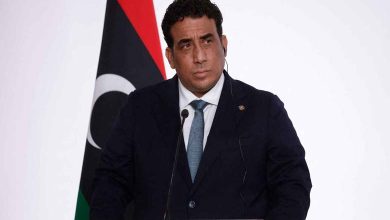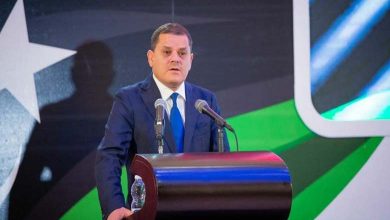Dbeibeh Government Reveals Gas Surplus Deficit Prior to Meloni Visit

Libya has no surplus gas to export to Europe, Libyan Minister of Oil and Gas Mohammed Aoun said Saturday ahead of a visit by Italian Prime Minister Giorgia Meloni to Tripoli to attend the signing of an $8 billion energy agreement between the Libyan Oil Corporation and Eni.
“We don’t have a huge surplus, we export about 300 million cubic feet of gas to Italy every day, and we still have gas needs at many power stations,” Aoun said in an interview with Russian news agency Sputnik.
Plans to increase Libya’s gas production will take three to four years, he said, noting that plans to increase oil production to two million barrels per day would impact Libya’s weak refining capacity. “Maybe in the future, if the Az Zawiya refinery were developed, or if new refineries were built,” he said.
Power cuts across Libya have returned to more than three hours a day, with some four hours cut off from the informal areas.
The Italian Prime Minister’s statements come prior to the arrival, on Saturday morning, in the Libyan capital Tripoli, of the Ministers of Foreign Affairs and the Interior in a visit that is the first in which she will discuss political partnership and issues of cooperation in the fields of industry, trade, energy supplies, the crisis in Libya, in addition to the issue of illegal immigration.
The Libyan government of national unity called for a press conference on Saturday afternoon, which will include Meloni, Prime Minister Abdul Hamid Dbeibeh, the Libyan Oil Corporation and the Italian company ENI.
Dbeibeh’s media office said the conference was held to “develop an agreement on the exploration and sharing of production”. An agreement between the two countries, worth $8 billion, is expected to be announced during the conference. The agreement will increase Libya’s gas supply by 850 million cubic feet as part of a 2008 agreement between the two countries.
Since November, Farhat Bengdara, chairman of the Petroleum Corporation, said in a statement carried by the Libyan News Agency that they reached an agreement with ENI to begin drilling operations in the Mediterranean Sea with a large area of gas.
According to his statement, ENI will be pumping $8 billion in investments to develop gas fields in western Libya.
Farhat Bengdara delayed the release of existing reserves until after production began, noting that Libya’s proven gas reserves in general “exceed 80 trillion cubic feet”.
Farhat Bengdara said he expects Libya will generate between $35 billion and $37 billion in oil revenues by the end of the year, and that Libya needs $4 billion in investments annually to maintain oil production through infrastructure modernization and the development of services in the fields.
Since last year, OPIC has called on international companies linked to oil and gas exploration and production agreements to raise their declared “force majeure,” resume all operations in the country, and raise production capacity.
Libya currently produces 1.2 million barrels of oil and consumes about 900 million cubic feet of gas per day in its energy production, which is more than two-thirds of its production. Libya exports the remainder through the Green Stream pipeline to Sicily, with a capacity of more than 8 billion cubic meters per year.
The talks in Tripoli are expected to cover illegal migration, especially those arriving in Italy from the opposite Libyan coasts, which the Libyan state has relaxed control over and along the border in general since 2011.
Former Undersecretary of State Hassan Al-Saghir said that any long-term agreements currently are illegitimate, and will be closer to contracts of compliance than they are to agreements.
“It is in no interest for Libya and its people to engage in conflicts over energy resources with producing and consuming countries and international producers,” al-Saghir said via his Facebook account.
“Wisdom and deliberation must be present in the minds of those who are leading the process, otherwise the consequences will be grave,” he said.
“Looking at the issue from one angle, which is increasing production and therefore imports, is a failure to understand the dangers of these files,” he said. “Any signature with Italy or others now is about contracts of compliance, not agreements (between the owners and the ones who have no choice).
“Meloni’s visit to Tripoli also carries profound political implications for the unity government, which has been searching for international legitimacy after the end of its mandate since June.”
Observers believe the unity government will seek to use the visit to lend legitimacy to its presence in light of differing Arab and international positions. The boycott by a number of Arab countries of a consultative meeting of the Arab Council of Ministers in Tripoli caused great embarrassment to the Dbeibeh government. “With the unity government announcing preparations to receive Meloni, some Libyan forces, such as the parallel government headed by Fathi Bashagha, have been unsure of such a visit.”
In an earlier statement, the government, appointed by the House of Representatives in eastern Libya, was surprised by Meloni’s visit and the signing of a new oil agreement. It warned of an oil deal, which it said is “mysterious, will increase the foreign partner’s quota, and decrease the Libyan quota.” But Farhat Bengdara denied this during a subsequent television interview.
The Bashagha government denounced what it described as “the opportunistic behavior of the Italian government that goes beyond Libya’s supreme interests and risks the good relationship between the two countries,” and confirmed that the Tripoli government is not competent to sign any agreements or memoranda of understanding, warning that Libya “will not abide by any agreements or memoranda of understanding of dubious purpose and articles.”
“For nearly a year, Libya’s government has been split again between the Dbeibeh government, which controls the country’s west and its capital and its sovereign and financial institutions, and refuses to hand over power except to an elected body, while the Bashagha government is based in the cities of Benghazi and Sirte, insisting on its unique legitimacy.”
Former political advisor to the High Council of State, Ashraf Shah, said that the Italian Prime Minister’s visit to the capital, Tripoli, shows the return of Rome to the Libyan file, which carries a special strategic importance for it, but he called on it to clarify that the visit does not mean taking sides.
“It must convey the message that it is not good for Libya and its people to remain divided in institutions, and that elections must take place in 2023,” Shah told the Italian media group Adnkronos, quoted by the Italian news agency AKI on Friday.
He noted that this visit comes amid a total stalemate on the political front, pending the meeting to be held in Washington in mid-February between representatives of the countries involved in the Libyan file, namely “France, the United States, Italy, Germany, the United Kingdom, Egypt and Turkey.”


